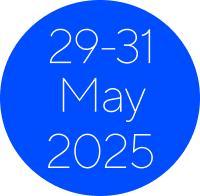Chair: Nicola Walsh (United Kingdom)
Speakers: Kenneth Chance-Larsen (Norway), Rachel Fenemor (New Zealand), Chidozie Mbada (United Kingdom)
- Participants will gain knowledge of how to address implementation challenges when establishing First Contact Physiotherapy services across a range of international contexts.
- Participants will gain a better understanding of how specific international contexts impact the role of the First Contact Physiotherapist and how this affects service provision.
- Participants will be equipped with information to assist with service planning when introducing First Contact Physiotherapy initiatives.
First Contact Physiotherapy (FCP) is an initiative whereby patients with musculoskeletal disorders can access physiotherapy services without the need for prior General Practitioner (GP) or Nurse Practitioner (NP) consultation [1]. All FCP practitioners can conduct an expert assessment, and subsequently either work with patients to determine a management plan, to refer on to another healthcare professional, or to discharge the patient with appropriate safety-netting. Some FCP staff can also order further investigations, including imaging and haematology; provide intra-articular injections; list for surgery; and prescribe some medications [2].
There is evidence to suggest that FCP services are cost-effective [3], result in high levels of patients satisfaction [4], and positively impact on use of prescribed medication [3]. Whilst the majority of the supporting evidence has originated in the UK, FCP services are becoming more established in other parts of the world, and have the potential to address global issues regarding access to high quality musculoskeletal care. Despite the evidence to support FCP there are challenges associated with its successful implementation, including established patient expectations of medically led models of care; blurring of professional boundaries; ongoing professional support and personal development; and impact on the skillset of other staff [5]. This focussed symposium will include experts from Nigeria, New Zealand, Norway and the UK, with experience of investigating and delivering FCP services.
The purpose of this focussed symposium is to:
- Highlight the current challenges associated with the implementing FCP services
- Recognise the different cultural factors that impact on acceptance of FCP provision and how these could be addressed to support successful implementation.
- Provide an implementation template for use when planning FCP services, considering professional and cultural contexts.
An introduction to FCP will be provided by the Chair (Nicola Walsh)
Presentations will then be delivered by experts in the area:
Kenneth Chance-Larsen (Norway) will share reflections on how financial factors, perceptions about competence, professional hierarchy, and established practice, can shape and challenge the emergence of a new model of care, such as the FCP role, from the perspectives of Norwegian GPs and physiotherapists.
Chidozie Mbada (Nigeria) will present perceptions and experiences of Nigerian physiotherapists on direct access, patients’ self-referral and autonomous practice, as well as barriers and facilitators of globalising and legislating FCP as a new model of care in Nigeria and similar contexts.
Rachel Fenemor (New Zealand) will discuss how the role works to meet obligations under Te Tiriti o Waitangi (The Treaty of Waitangi) [6] to improve the health of our indigenous Māori population and the limitations of our accident compensation corporation (ACC).
Nicola Walsh (United Kingdom) will highlight key mechanisms that can be employed at practice and provider level to support successful implementation and sustainability of the FCP service.
- NHS England. First Contact Physiotherapists. https://www.england.nhs.uk/gp/expanding-our-workforce/first-contact-physiotherapists/ [Accessed April 2024]
- Health and Care Professions Council. Medicines and prescribing rights. https://www.hcpc-uk.org/standards/meeting-our-standards/scope-of-practice/medicines-and-prescribing-rights/ [Accessed April 2024]
- Walsh et al (2024) First Contact Physiotherapy: An evaluation of clinical effectiveness and costs. British Journal of General Practice 1 March 2024; BJGP.2023.0560. DOI: https://doi.org/10.3399/BJGP.2023.0560 (online first)
- Wood L et al (2022). Patient satisfaction with the first contact physiotherapy service: Results from the national evaluation survey. Musculoskeletal Care. 2022 Jun;20(2):363-370. doi: 10.1002/msc.1599. Epub 2021 Oct 28. PMID: 34709711.
- Moffatt F et al (2018) Physiotherapy-as-first-point-of-contact-service for patients with musculoskeletal complaints: understanding the challenges of implementation. Primary Health Care Research & Development. 2018;19(2):121-130. doi:10.1017/S1463423617000615
- Ministry of Health – Manatū Hauora. https://www.health.govt.nz/our-work/populations/maori-health/te-tiriti-o-waitangi [Accessed April 2024]
See the 24 focused symposia to be presented at congress.
Find out who the key speakers at congress will be.
Find out which clinical topics will be covered in these discussion-based seminars.




